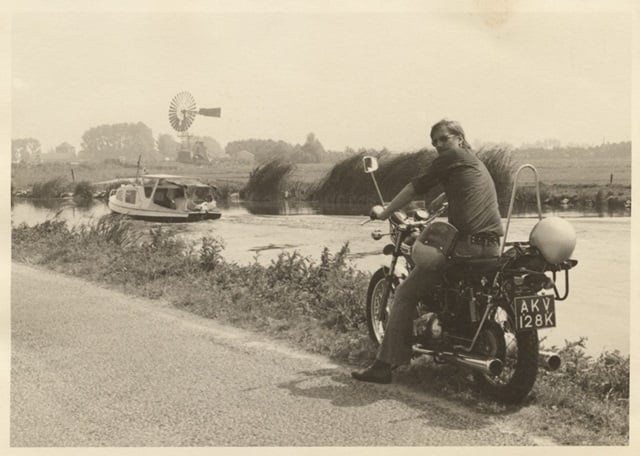Art World
Metropolitan Museum Curator Walter Liedtke’s Colleagues Remember His Work
"He was the perfect Met curator—one of the world’s experts."

"He was the perfect Met curator—one of the world’s experts."

The art and museum community were shocked last week when news emerged that curator Walter Liedtke had died in a train accident. (See Tragedy as Metropolitan Museum Curator Walter Liedtke Killed in Metro-North Train Crash.) artnet News spoke to several of Liedtke’s peers and colleagues about what distinguished his work, including the depth of his scholarship, his notable shows and his taste for intellectual jousting. Here’s what they said.
Ian Wardropper, director of New York’s Frick Collection and a former co-worker at the Metropolitan Museum:
He was the perfect Met curator—one of the world’s experts, in charge of a standout department.
[Met director] Thomas Campbell brought virtually everyone to tears at a memorial service when he read from a catalogue entry Walter wrote on a Vermeer painting (see Metropolitan Museum Holds Private Vigil for Walter Liedtke). It was not just well-informed but also a searching piece of writing, in which he tried to find poetry in a work of art. He was looking for the essence of what each artist was trying to achieve. He aimed to illuminate why these works were important. That was Walter.
Arthur Wheelock, curator of Northern European art at the National Gallery of Art, Washington, D.C.:
His work constitutes an in-depth and persistent investigation, which requires a lifetime of careful scrutiny. He always took the same train in the morning and the same train in the evening. That is the sort of day-in-and-day-out consistency that enabled him to really bear down on his subject.
I have always admired his love for his institution and his care for the collection. His catalogues of Dutch and Flemish paintings are wonderful models. Too often those core research areas get overlooked in favor of exhibitions.
“Rembrandt/Not Rembrandt” [a 1996 show dealing with questions of authenticity regarding the museum’s own holdings] was a brave exhibition, and one he relished. He didn’t shy away from controversy. He had a flair with words and sometimes he was even a bit edgy in the way he expressed himself.
David Tunick, New York art dealer specializing in prints from the 15th to the mid-20th century:
I think back to the exhibition “Rembrandt/Not Rembrandt” and how much anybody could have learned from that—from a school kid to a 17th century Dutch scholar. Whether he was writing about Vermeer or Hals or speaking about Rembrandt’s painting Aristotle With a Bust of Homer, I think the video (see the great short video of Liedtke talking about the painting that Tunick is referring to here) is very insightful in terms of Walter’s scholarship and his gift and his passion and his energy. I think anyone who wants to understand what Walter‘s legacy was ought to look at the video. In a way, it is explicative of what Walter gave to all of us. To me, he was one of the great art historians of our time, making things direct and making them simple enough no matter how complex they might have been.
Richard Rand, senior curator of paintings and sculpture at the Clark Art Institute in Williamstown, Massachusetts, writing on the Metropolitan Museum of Art’s website:
I invited Walter to LA to give a lecture on Rembrandt. He happily agreed, and I met him for the first time when I showed him around the exhibition. We planned to meet for dinner that evening, the night before his talk. On my way to dinner, I was held up at gunpoint while filling up the car at a gas station. When we finally got to the dinner, Walter listened carefully to my story and said, “Well, there’s only one thing for you to do now, and that’s get drunk.” … The last time we spoke was when he came to an opening of Clark pictures at the Royal Academy in London in 2012. We had a long talk, and Walter made me feel like I was the one person there that he most wanted to speak with. Great guy.
(See also Remembering Walter Liedtke, Metropolitan Museum Curator Killed in Metro-North Train Crash, and In Honor of Curator Walter Liedtke, Vermeer’s ‘View of Delft’ at the Mauritshuis is the Daily Pic by Blake Gopnik.)